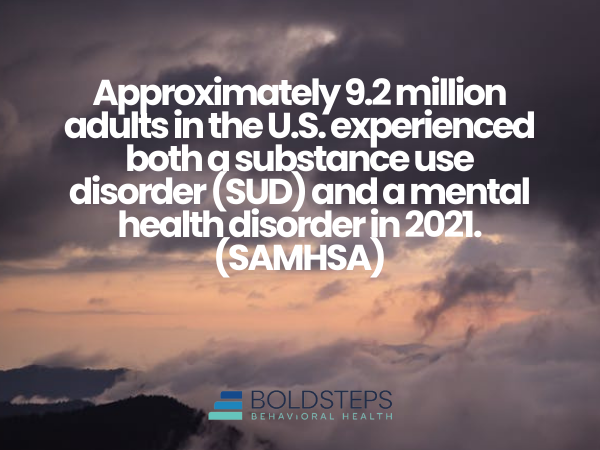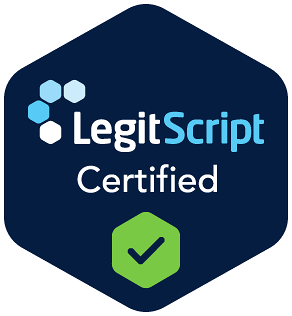Addiction and mental health are deeply interconnected, and treating one without addressing the other often leads to incomplete recovery. Many individuals struggling with substance use disorders also experience co-occurring mental health conditions such as anxiety, depression, PTSD, or bipolar disorder. This dual challenge is known as dual diagnosis or co-occurring disorders. Without addressing both conditions simultaneously, individuals face higher risks of relapse and significant barriers to achieving lasting sobriety.
At Bold Steps Behavioral Health in New Hampshire, we specialize in providing integrated care through our Dual Diagnosis Treatment Program, Addiction Treatment Program, and holistic services like Partial Hospitalization Programs, Intensive Outpatient Programs, and Virtual Treatment Programs. Our evidence-based approach ensures that individuals receive comprehensive care for both their mental health and addiction challenges.
What is Dual Diagnosis?
Dual diagnosis occurs when an individual has both a mental health disorder and a substance use disorder. These conditions often interact and exacerbate each other, creating a cycle that is difficult to break without professional help. For example, someone with untreated depression may use alcohol to self-medicate, which can lead to dependence. Conversely, substance abuse can worsen or trigger symptoms of mental illness, creating a vicious cycle.
Common Co-Occurring Disorders
- Anxiety Disorders: Generalized anxiety disorder (GAD), panic disorder, and social anxiety often coexist with substance use disorders.
- Depression: Individuals with major depressive disorder frequently turn to drugs or alcohol to numb emotional pain.
- PTSD: Trauma survivors may use substances to manage flashbacks, hypervigilance, or emotional numbness.
- Bipolar Disorder: Individuals with bipolar disorder may misuse substances to stabilize extreme mood swings.
- Personality Disorders: Conditions like borderline personality disorder (BPD) or antisocial personality disorder (ASPD) often coincide with addiction.
The Connection Between Addiction and Mental Health
Addiction and mental health disorders are often linked, sharing common risk factors such as genetics, trauma, and environmental stressors. Each condition can influence the other, making integrated treatment essential.
Key Factors Linking Addiction and Mental Health
- Self-Medication: Individuals with mental health disorders often use substances to cope with symptoms such as anxiety, depression, or insomnia.
- Neurochemical Changes: Both addiction and mental health conditions alter brain chemistry, impacting decision-making, emotions, and behavior.
- Shared Risk Factors: Genetic predisposition, adverse childhood experiences (ACEs), and chronic stress increase the likelihood of developing both conditions.
Why Dual Diagnosis Treatment is Crucial
Traditional treatment models often focus on either addiction or mental health, but dual diagnosis requires addressing both simultaneously. Ignoring one condition can hinder progress in treating the other and increase the risk of relapse.
Benefits of Dual Diagnosis Treatment
- Comprehensive Care: Addresses the physical, psychological, and emotional aspects of addiction and mental health.
- Improved Outcomes: Research shows that integrated care leads to higher recovery rates and reduced relapse risks.
- Tailored Support: Dual diagnosis programs are customized to meet the unique needs of individuals with co-occurring disorders.
Signs You May Need Dual Diagnosis Treatment
Recognizing the need for dual diagnosis treatment is the first step toward recovery. Common signs include:
- Persistent feelings of sadness, anxiety, or hopelessness.
- Using substances to cope with emotional or psychological distress.
- Difficulty maintaining work, school, or relationships due to substance use or mental health symptoms.
- Frequent mood swings, irritability, or impulsive behavior.
- Experiencing withdrawal symptoms and worsening mental health when not using substances.
What to Expect in a Dual Diagnosis Treatment Program
At Bold Steps Behavioral Health, our Dual Diagnosis Treatment Program integrates therapies, medical care, and holistic approaches to address both addiction and mental health comprehensively.
1. Comprehensive Assessment
Treatment begins with a thorough evaluation to identify the full scope of an individual’s challenges. This includes:
- Substance Use History: Assessing the type, frequency, and impact of substance use.
- Mental Health Screening: Diagnosing co-occurring conditions like depression, anxiety, PTSD, or bipolar disorder.
- Physical Health Evaluation: Identifying any medical issues related to substance use or mental health disorders.
2. Personalized Treatment Plans
Every individual’s journey is unique. Our team creates customized treatment plans tailored to each person’s specific needs, goals, and circumstances. These plans may include:
- Therapy Sessions: Individual, group, and family therapy to address underlying issues and build coping skills.
- Medication Management: Prescribing and monitoring medications to stabilize mental health symptoms and reduce cravings.
- Relapse Prevention Strategies: Teaching skills to identify triggers and maintain sobriety.
3. Evidence-Based Therapies
Our program incorporates a variety of therapeutic approaches to address addiction and mental health together:
Cognitive Behavioral Therapy (CBT):
CBT helps individuals recognize and change negative thought patterns that fuel addiction and mental health symptoms.
Dialectical Behavior Therapy (DBT):
DBT focuses on emotional regulation, stress management, and interpersonal effectiveness, making it especially beneficial for individuals with borderline personality disorder or PTSD.
Trauma-Informed Care:
This approach acknowledges the role of trauma in addiction and mental health, creating a safe and supportive environment for healing.
Motivational Interviewing (MI):
MI helps individuals explore their motivations for change and build confidence in their ability to recover.
4. Levels of Care
We offer a continuum of care to meet individuals where they are in their recovery journey:
Partial Hospitalization Program (PHP):
- Intensive daily therapy and medical support while allowing individuals to return home in the evenings.
- Ideal for individuals who need structured care but do not require 24-hour supervision.
Intensive Outpatient Programs (IOP):
- Flexible treatment that allows individuals to maintain work, school, or family responsibilities.
- Includes multiple weekly therapy sessions focused on relapse prevention and skill-building.
Outpatient Treatment Program:
- Provides ongoing therapy and support for individuals transitioning from higher levels of care.
- Focuses on maintaining progress and addressing new challenges in recovery.
Virtual Treatment Program:
- Offers online therapy and counseling for those unable to attend in person.
- Ensures accessibility and convenience while maintaining high-quality care.
5. Medication-Assisted Treatment (MAT)
Medications can be an important component of dual diagnosis care, helping to:
- Reduce cravings and withdrawal symptoms.
- Stabilize mental health conditions like anxiety, depression, or bipolar disorder.
- Support long-term recovery when combined with therapy.
6. Holistic Therapies
In addition to traditional treatments, we integrate holistic methods to promote overall well-being, including:
- Mindfulness and Meditation: Helps individuals manage stress and stay present.
- Physical Fitness and Nutrition: Supports physical recovery and mental clarity.
- Creative Therapies: Art and music therapy provide healthy outlets for self-expression.
Family Involvement in Dual Diagnosis Treatment
Addiction and mental health disorders often strain relationships, making family involvement a critical part of recovery. At Bold Steps, we provide:
- Family Therapy: Rebuilds trust, improves communication, and fosters understanding.
- Education Programs: Equips families with knowledge about addiction, mental health, and recovery strategies.
- Family Support Groups: Connects loved ones with others facing similar challenges.
Why Choose Bold Steps Behavioral Health?
At Bold Steps Behavioral Health, we are dedicated to providing compassionate, comprehensive care for individuals with dual diagnosis. Here’s why individuals choose us for their recovery journey:
1. Expert Team
Our licensed therapists, addiction specialists, and medical staff bring extensive experience in treating co-occurring disorders.
2. Individualized Care
We tailor every treatment plan to meet the unique needs and goals of each individual.
3. Full Continuum of Care
From detox to outpatient services, we provide seamless support at every stage of recovery.
4. Holistic Healing
We address the mind, body, and spirit to promote lasting recovery and overall well-being.
5. Accessible Options
With in-person and Virtual Treatment Programs, we make high-quality care available to everyone, regardless of location.
Conclusion
Dual diagnosis treatment is essential for individuals struggling with both addiction and mental health disorders. By addressing both conditions together, individuals can achieve a more comprehensive and sustainable recovery. At Bold Steps Behavioral Health, we provide the tools, resources, and support needed to overcome these challenges and build a brighter future.
Take the first step today. Call us at (603) 915-4223 or visit Bold Steps Behavioral Health to learn more about our Dual Diagnosis Treatment Program, Addiction Treatment Program, and other services. Together, we can help you achieve lasting recovery.
FAQ on Dual Diagnosis Treatment
What is dual diagnosis treatment?
Dual diagnosis treatment is a specialized approach that addresses both addiction and co-occurring mental health disorders, such as anxiety, depression, PTSD, or bipolar disorder, simultaneously.
Why is dual diagnosis treatment important?
Treating addiction and mental health disorders together improves recovery outcomes. Ignoring one condition while treating the other often leads to incomplete recovery and a higher risk of relapse.
What are common co-occurring mental health conditions?
Common mental health conditions that co-occur with addiction include:
- Anxiety disorders
- Depression
- Post-traumatic stress disorder (PTSD)
- Bipolar disorder
- Borderline personality disorder
How does Bold Steps Behavioral Health approach dual diagnosis treatment?
We provide integrated care through programs like our Dual Diagnosis Treatment Program, which combines therapy, medication management, and holistic approaches to treat both addiction and mental health simultaneously.
What therapies are used in dual diagnosis treatment?
Evidence-based therapies include:
- Cognitive Behavioral Therapy (CBT): Addresses negative thought patterns.
- Dialectical Behavior Therapy (DBT): Focuses on emotional regulation.
- Trauma-Informed Care: Helps individuals process past trauma.
- Motivational Interviewing (MI): Builds motivation for recovery.



